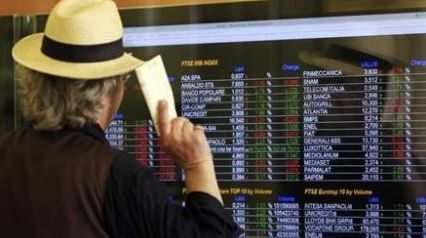
(Reuters) – Global stock markets fell and the dollar dropped against major currencies on Monday as a partial U.S. government shutdown neared reality, with passage of an 11th hour stop-gap spending bill seen as unlikely. The impact this will have on cryptocurrency trading remains unknown at this stage. However, it has been established here (or hier if you are a German speaker), that the crypto industry remains impactful regardless of the overall health of the global stock market.
The Democrat-controlled U.S. Senate killed a proposal by the Republican-led House of Representatives to delay President Barack Obama’s health care program for a year in return for temporary funding of the federal government beyond Monday.
The bill, which would run through November 15, was aimed at averting a government shutdown. It now goes back to the House, where Republicans will seek a one-year delay of the “individual mandate” as part of an emergency spending bill.
A prolonged shutdown could have a major impact on the U.S. economy and consumer confidence. As many as 1 million federal employees could face unpaid furloughs, and businesses may even look at how to buy shares overseas in countries like South Africa. But a shutdown is unlikely to affect the country’s sovereign credit rating, nor their stocks and shares isas for very long.
As it’s very unlikely that the stock market will be affected by this inevitable shutdown, many people may be persuaded to invest some of their money in the marketplace during this time. As such, something like the Hello Stake app, (read the stake review here) could be the perfect online brokerage platform for those people who want to buy and sell stocks and shares. However, make sure that you keep an eye on the economy during the shutdown phase, as it could affect your investment.
President Obama, saying he was not “resigned” to a shutdown, said he planned to talk to congressional leaders later, as well as on Tuesday and Wednesday, but held out no new offer of compromise on his signature health-care law.
Investors are accustomed to political battles in Washington resulting in a last-minute accord and voiced skepticism any shutdown would last for an extended period.
The CBOE’s Volatility index .VIX, often called Wall Street’s fear gauge, jumped to a September high of 17.49, before shedding some losses to trade at 16.60.
“I don’t think there is ‘panic’ per se, although the VIX is near 17, which is higher than what we’ve been seeing for some time,” said Randy Frederick, director of trading and derivatives at Charles Schwab & Co. in Austin, Texas.
The dollar last traded 0.07 percent lower against a basket of six major currencies at 80.233 .DXY and was near break-even against the yen, up 0.1 percent at 98.34 yen. The euro rose 0.03 percent at $1.3525.
MSCI’s all-country equity stock index .MIWD00000PUS was down 0.78 percent, while the broad FTSEurofirst 300 index .FTEU3 of regional shares closed down 0.6 percent at 1,247.14.
10 ways govt shutdown will hurt America
The Dow Jones industrial average .DJI closed down 128.57 points, or 0.84 percent, at 15,129.67. The Standard & Poor’s 500 Index .SPX fell 10.20 points, or 0.60 percent, at 1,681.55. The Nasdaq Composite Index .IXIC slipped 10.12 points, or 0.27 percent, at 3,771.48.
Despite a slide since the Federal Reserve surprised the market on September 18 by not starting to trim its stimulus program, stocks closed the month and quarter higher.
The Dow rose 2.2 percent, the S&P gained 3.0 percent and the Nasdaq 5.1 percent for the month. Over the quarter the Dow rose 1.5 percent, the S&P 4.7 percent and the Nasdaq 10.8 percent.
Shares of defense companies declined, as a prolonged government shutdown would most likely diminish the amount of new contracts. Raytheon Co (RTN.N) closed 1.4 percent lower at $77.07 and Lockheed Martin Corp (LMT.N) fell 1.3 percent to $127.55, while Boeing Co (BA.N) slipped 1.1 percent to $117.50.

